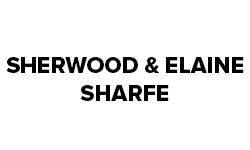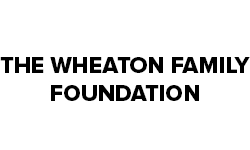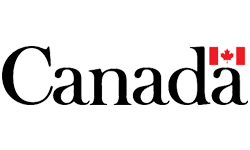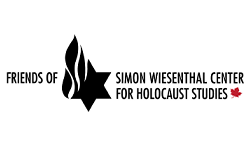Part C
Inquiry Resources
ROVER (Recommended Online Video Education Resources) is a video streaming service for Saskatchewan teachers and students in the PreK-12 education system. It is managed and maintained by the Saskatchewan Ministry of Education.
The ROVER service is video-on-demand which provides teachers and students with the convenience of immediate access to streamed, educational videos that support curriculum. ROVER videos are housed on a server located in a school or school division network so there are no bandwidth issues, resulting in better picture quality and continuous play of videos without pauses. The videos are intended for viewing on the streaming site and not for copying or downloading.
There are over 1000 videos on ROVER that can be accessed by teachers and students to enhance learning in the classroom. All the videos found on this site have been evaluated by educational professionals and recommended to support Saskatchewan’s K-12 curricula. The ROVER collection of videos continues to evolve as new videos are added annually and old videos expire.
Case Studies Resources
- Choose Your Voice (FAST – Fighting Antsemitism Together)
- Fighting Antisemitism Together (FAST): http://www.fightingantisemitism.ca/
- Voices into Action: http://www.voicesintoaction.ca
- Facing History and Ourselves
- Historical Thinking Project
- The Critical Thinking Consortium – find website
- Vancouver Holocaust Education Centre
- Burma and the Great Awakening – CBC News in Review (R.O.V.E.R.)
- Mandela (R.O.V.E.R.)
- Nelson Mandela (R.O.V.E.R.)
- North to Freedom: The Underground Railroad to Canada (R.O.V.E.R.)
- The Dark Side of Chocolate (R.O.V.E.R.)
- White Man’s Country (R.O.V.E.R.)
- Women’s Rights: Raising the Glass Ceiling (R.O.V.E.R.)
- EconomicJustice.ca
- Holodomor Website: sharethestory.ca
Possible Resources for Conflict Resolution Procedures:
- PLEA
- Truth and Reconciliation Commission
- Conflict Resolution Saskatchewan
- Restorative Justice Online
- Ontario Justice Education Network
- The Centre for Justice and Accountability
- Creative Spirits Website (Australia)
- SaskDebate.com
- Fundamental Freedoms: The Charter of Rights and Freedoms Video (R.O.V.E.R.)
- Egale – http://egale.ca/
- PFLAG – http://pflagcanada.ca
- Williams Social – variety of videos with factual information to support Social Sciences https://www.youtube.com/user/WilliamsSocial/featured
- Canadian Investigations: Civics and Citizenship , Bolotta, A., al (Donaldson, C., Duncan, I., Keirstead, M. Oxford University Press. 2014. (Add to other resources list gr. 8 – 12)
Cross Curricular Connections
“If students are to become lifelong learners, develop a sense of self and connection to others, and become engaged citizens and achieve the Cross-curricular Competencies and the outcomes for English language arts, students require meaningful, authentic contexts for learning. Students need many opportunities to explore questions and concerns about themselves and about the world.”
The Concentus Citizenship Education Resources provide teachers with a framework of inquires with which to further students’ explorations of their roles and responsibilities as Canadian citizens, in authentic contexts. These inquiries are directly connected to Social Sciences (History, Native Studies, Social Studies) foundational outcomes and the broad goals of learning identified above. Specific connections to English Language Arts and Treaty Education are identified and suggested as starting points for teachers.
English Language Arts 20 (Unit 2):
Contexts/Themes
Moving Forward – Establishing and Realizing (possible sub-units include: Turning Points and Transitions; Evolving Roles and Responsibilities; Opportunities and Obstacles; Risks and Rewards; Beliefs and Goals)
Essential Questions
- How do our relationships with others evolve and influence us as we mature and age?
- Are all the roles and the work associated with those roles valued or respected equally? How can you ensure that the work you do and the roles you play will be valued and respected equally?
- What are contemporary expectations of adults? How do the roles and expectations of adults vary among cultures and through the various stages of adulthood?
- As we mature and age, what are our responsibilities to self and to others? How do these responsibilities change?
- What does the concept of a balanced life mean? How and why do we plan to achieve balance in our lives? Is the quest for balance universal?
- How do our values and beliefs determine the paths of life that we may explore? What influences or necessitates the re-evaluation of our values and beliefs?
Treaty Education
- TR11: Examine how Canada’s process of treaty making could be applied to situations in other parts of the world where Indigenous people have struggled to have rights recognized.
- SI11: Analyze how the unfulfilled aspects of treaties, with international indigenous people, have resulted in inequities.
- HC11: Evaluate specific treaties that have been, or currently are, in place globally to determine their effectiveness.
- TPP11: Analyze the impact Canadian treaties could have on resolving global conflict.
Further Investigation Suggestions
- Using various historical and contemporary examples of injustice, have the students engage in various justice forums:
- Court Trial,
- Sentencing Circles,
- Town Hall Meeting,
- Mediation,
- Truth and Reconciliation Commissions,
- Human Rights Tribunals.
© 2023 Concentus Citizenship Education Foundation Inc. All Rights Reserved.









